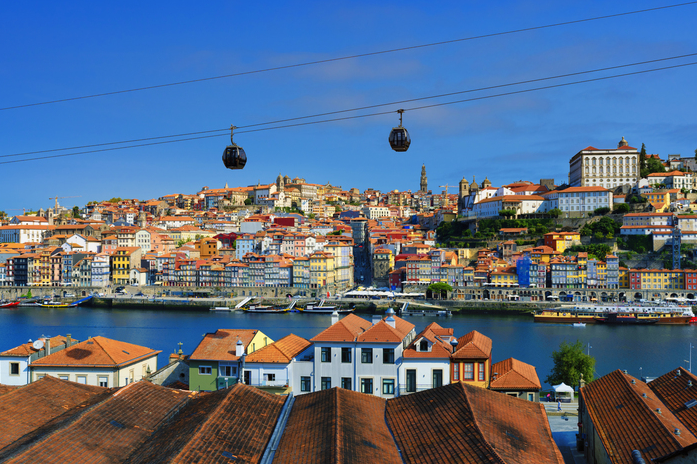How Portugal Golden Visa Changes Affect Residency Applications
- doursoniy512
- Sep 1, 2025
- 4 min read
Portugal’s Golden Visa program has been a popular pathway for non-EU investors to obtain residency in Europe since its launch in 2012. The program allows applicants to gain residency permits by investing in real estate, job creation, or other qualifying activities, with the added benefit of visa-free travel throughout the Schengen Area. Over the years, the program attracted thousands of applicants worldwide, thanks to its low stay requirements and clear path to citizenship after five years.
However, in 2023, the Portuguese government announced significant reforms to the Golden Visa scheme aimed at addressing rising housing prices and increasing the availability of affordable housing for residents. The key change involves restricting real estate investments eligible for the program in high-density urban areas like Lisbon, Porto, and much of the coastal Algarve. This shift pushes applicants towards alternative investment options and less populated interior regions, fundamentally changing the landscape for future residency applications.

Impact on Real Estate Investment Options
The most immediate and noticeable effect of the changes is on real estate investment eligibility. Previously, investors could choose properties anywhere in Portugal, including prime urban areas. Now, the acquisition of residential properties in Lisbon, Porto, and certain parts of the Algarve no longer qualifies for the Golden Visa. Instead, investments must be directed towards designated low-density municipalities, interior regions, or property rehabilitation projects in urban areas.
For applicants, this means a major shift in where and what types of properties they can purchase to qualify. Many investors preferred urban locations for their higher rental yields, resale potential, and lifestyle amenities. The new restrictions may lead to increased interest in regions like Alentejo, Centro, and interior northern Portugal, potentially stimulating economic growth in those areas but also requiring investors to adjust their expectations and research accordingly. Click Here
Alternative Investment Routes and Their Growing Importance
With real estate options in prime cities limited, Portugal is encouraging other forms of qualifying investments. These include capital transfers to Portuguese companies or funds focused on innovation, job creation, or cultural preservation. Investment in scientific research or supporting artistic projects are also valid pathways.
These alternative routes align with the government’s goals to diversify economic benefits and support sustainable development. For applicants, this means that aside from real estate, they can consider investments in venture capital, startups, or cultural funds that may offer different risk and return profiles. While these options can be appealing to investors seeking portfolio diversification, they may also require a deeper understanding of Portugal’s business environment and investment landscape.
Effect on Application Volume and Market Demand
Since the announcement of the reforms, there has been a noticeable impact on the volume and nature of Golden Visa applications. The reduction in urban property eligibility has slowed down real estate transactions linked to the program in cities like Lisbon and Porto. Many investors are taking a wait-and-see approach to understand the full implications of the new rules.
At the same time, demand in interior regions has increased, although these markets are less developed and may lack some of the conveniences found in larger cities. The government anticipates that the reforms will rebalance investment flows and create more equitable development across Portugal’s regions. For residency applicants, this means navigating a changing market with potentially new opportunities but also challenges in property selection and valuation.
Implications for Residency and Citizenship Timelines
One of the attractive features of Portugal’s Golden Visa was the ability to apply for citizenship after just five years with minimal stay requirements. The recent changes do not affect the legal residency or citizenship criteria directly; applicants who qualify through the new investment routes retain the same timeline and benefits.
However, potential delays in completing investments or adjusting to new requirements could indirectly impact application timelines. For example, navigating alternative investment opportunities might require additional due diligence or professional advice. Therefore, applicants are advised to plan ahead and work closely with legal and financial advisors to ensure timely compliance with the updated program requirements.
Challenges and Opportunities for New Applicants
New applicants face both challenges and opportunities under the reformed Golden Visa scheme. The challenges include a narrower real estate market, potential unfamiliarity with less-developed regions, and the complexity of alternative investment options. These factors may require more careful planning and expert guidance.
Conversely, the changes present opportunities for investors to contribute to Portugal’s economic diversification and regional development. Investing in emerging markets within Portugal can lead to attractive long-term growth and closer engagement with local communities. The diversification of investment types also means that applicants with interests beyond real estate have more tailored options to meet their goals.
Conclusion: Navigating the New Landscape of Portugal’s Golden Visa
Portugal’s Golden Visa reforms mark a significant evolution in the country’s approach to residency-by-investment. While the restrictions on urban real estate investments pose initial challenges for many applicants, the opening of alternative routes and focus on regional development offers new opportunities for savvy investors.
Prospective applicants should stay informed about regulatory updates, seek professional advice, and remain flexible in their investment strategies. By adapting to the changing landscape, investors can continue to benefit from Portugal’s welcoming environment, attractive lifestyle, and access to the broader European Union.


Comments